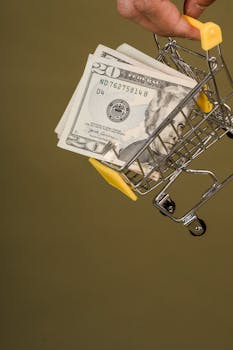The current trending topic in Economic Updates is the impact of inflation on consumer spending. With inflation rates on the rise in many countries, consumers are feeling the pinch as prices for goods and services continue to increase. This has led to a decrease in purchasing power for many individuals and households, which in turn can have a significant impact on overall economic growth.
One of the key effects of inflation on consumer spending is that it can lead to a decrease in disposable income. As prices rise, consumers are forced to spend more of their income on basic necessities such as food, housing, and transportation, leaving less money available for discretionary purchases. This can have a ripple effect on the economy as a whole, as decreased consumer spending can lead to lower demand for goods and services, which can in turn lead to decreased production and job losses.
Another impact of inflation on consumer spending is that it can lead to changes in consumer behavior. As prices rise, consumers may become more cautious with their spending, opting to save more and spend less in order to protect their purchasing power. This can have a negative impact on businesses, particularly those that rely on consumer spending for their revenue. In order to adapt to changing consumer behavior, businesses may need to adjust their pricing strategies or offer discounts and promotions to incentivize spending.
Overall, the impact of inflation on consumer spending is a complex and multifaceted issue that can have far-reaching consequences for the economy. It is important for policymakers and businesses to closely monitor inflation rates and consumer spending patterns in order to make informed decisions that will support economic growth and stability. By understanding the relationship between inflation and consumer spending, policymakers can implement strategies to mitigate the negative effects of inflation and support a healthy and vibrant economy.

Leave a Reply